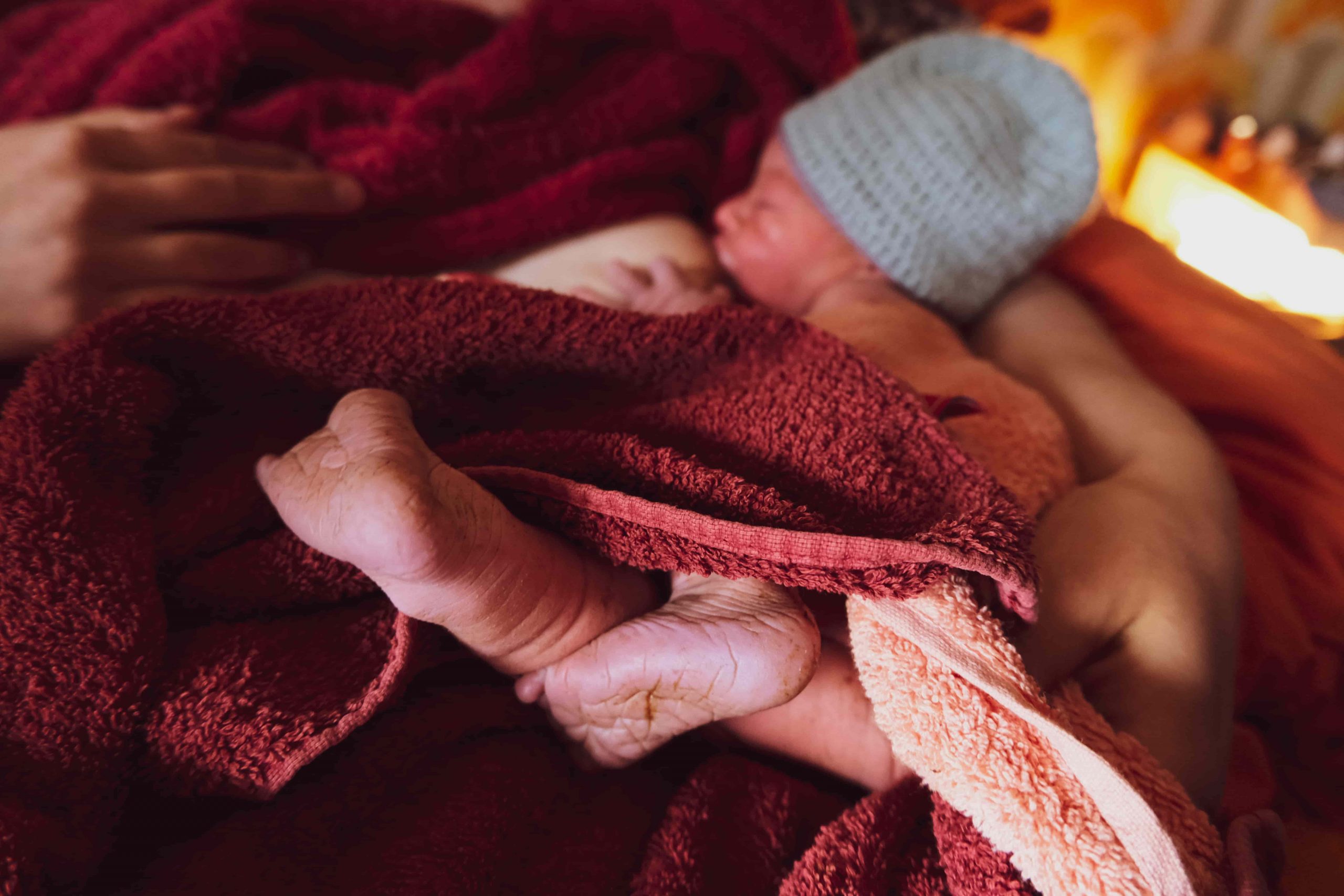This Wednesday, 5th of May, a profession as old as childbearing is celebrated: International Midwife Day. The first official records of midwifery date back until the 17th century. Since then, midwives have become an essential part of pregnancy support and birth procedures.
This year’s theme is “Follow the Data: Invest in Midwives.” This theme was chosen as a new report that will be published by the International Confederation of Midwives that presents updated evidence and detailed analysis on the impact of midwives on maternal and newborn health outcomes and, therefore, the return on investment in midwives.
Andrea Sutcliffe CBE, Chief Executive and Registrar for the Nursing and Midwifery Council said:
Today is an important opportunity for us to recognise and celebrate the incredible efforts of UK midwives and midwifery students who, despite facing uncertainty and adapting to new ways of working, have continued to provide safe, kind and effective care and support for women and their families throughout the coronavirus pandemic.
In honour of International Midwife Day, we will take a closer look at midwifery.
What are their roles
Midwives conduct prenatal care according to the maternity guidelines, lead various courses during and after pregnancy, attend births at home, in the clinic and in the birth centre and visit the new parents individually at home afterwards. The profession is more than just delivering babies; especially the emotional support before, during, and after pregnancy are important.
Theresa Orlob, a freelance midwife from Germany, shared that she especially enjoys all the additional things a midwife can offer.
We can offer further training and additional services such as acupuncture, taping, massages, psychological counselling, hypnosis and so on.”
Katie Love, a Registered Midwife at Queen Elizabeth Hospital London, said that while midwives will do their best to honour childbearing preferences, they will primarily advocate for safety.
We are responsible for escalating any concerns to doctors, should they need to be involved.”
With the COVID-19 pandemic restricting visits between households and public areas, taking care of new parents at home has proved difficult.
After the baby is born, we have the additional role of monitoring the infant’s vital signs and providing feeding support. We even visit the family at home – but COVID does not always permit this”
Miss Andrea Sutcliffe CBE said that it is important to remember that babies didn’t stop for COVID-19. “Midwives and midwifery students have made such an important contribution to the way the UK has responded.”
The difficulties
Besides the current difficulties of COVID-19 restrictions, a midwife’s profession has not come without struggles. The midwife’s role is to provide emotional support, offer and provide adequate pain relief, assess the wellbeing of the unborn child by listening to the baby’s heartbeat, and monitor the woman’s vital signs. Sometimes all these steps become too much.
Being a midwife is not always a joyful experience. We often provide care to families going through the loss of a baby, which can be very emotional for all involved,” Miss Love shared.
She highlighted the importance of looking after each other as a community and provide compassion to anybody going through a difficult time; staff included. Also, social care cases are emotionally difficult. “Not all babies go home with their birth mothers. This can be quite heart-wrenching, but we must remind ourselves that these children will be well looked after with their new family.”
An issue that both Miss Love and Miss Orlob stated are the staff shortages in hospitals and clinics.
As a result [of low staffing], we have a lot of overtime, constant changing shifts and, in view of the high level of responsibility and workload, a relatively low salary in German,” Miss Orlob said.
Miss Love shared that “the whole of the NHS is struggling with staff shortages, which frequently puts a strain on our work environment. The hospital in which I work is notorious for being one of the busiest in London; so, we are often subjected to burn-out and stress.”
In Germany, whether midwives do obstetrics or not, they are not well reimbursed by the health insurance companies for post-partum visits and preventive courses.
Another challenge is often the gynaecologists in private practice who are reluctant to cooperate with midwives.
The rewarding moments
Besides all the difficulties, the profession of a midwife can be very rewarding.
Nothing beats that look of complete adoration when you show a mother her newborn child for the first time. There have been many moments where I have cried at the beauty of it all!” Miss Love shared.
Miss Orlob says that especially the recognition and appreciation for her profession are very rewarding. “I don’t think there is a more beautiful job than accompanying happy people in one of the most intense and intimate life situations,” she said.
Miss Sutcliffe CBE is very glad that this profession has an entire international day dedicated to it. “I’m glad we have this opportunity to celebrate their skill and professionalism and thank them for their positive impact on the women, newborn infants and families they care for and support,” Miss Sucliffe said.
Studying the profession
By 2021, obtaining the professional title of “midwife” is only possible via a dual bachelor’s degree programme in Germany. After completing their studies, students have two degrees: the state examination and a Bachelor of Arts and can thus work internationally. A Master of Science in midwifery is also possible afterwards.
Similarly to Germany, in the UK you must obtain a degree at university to become a midwife. The degree in midwifery is a 3-year course usually made up of 50% university studies i.e. lectures, assignments and essays, and 50% working full time in a hospital setting. A student midwife will be assigned to one particular hospital where he/she will be mentored and assessed on their practical, communication and teamwork skills. The student will rotate to different areas, such as the delivery suite, community and postnatal ward, to get a holistic experience. Once a student has achieved all their practical competencies and completes all assignments, he/she can qualify as a midwife with the Nursing and Midwifery Council (NMC).
Finally, Miss Love answers the question that every midwife has been asked:
Yes, we DO want to hold your baby!”











